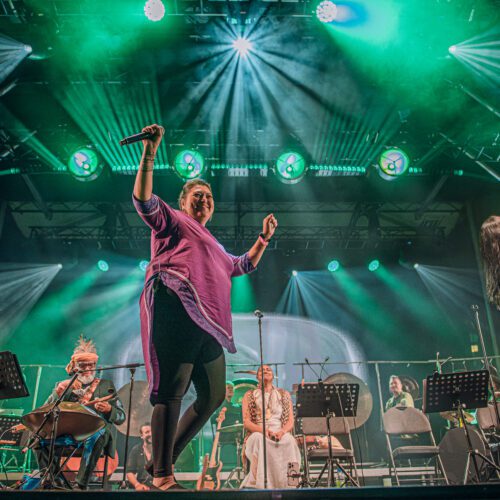A rare work with a perfect performance, Hector Berlioz’s L’enfance du Christ was warmly received by the Maison symphonique audience on Tuesday evening. The last concert of the year, the holiday season ends in triumph for the OSM.
A story is in order for this concert. Two years ago, the OSM programmed Hector Berlioz’s L’enfance du Christ with Hervé Niquet as conductor. Some people jumped at the chance to see a work so rare and unique that they bought tickets for the whole immediate family. Unfortunately, fate had other plans, and the second closure of the concert halls during the holiday season of 2021 was bitterly resented.
We had to wait two years to finally see this concert, and the wait was totally justified. A tantalizing freshness emanates from the score, and the music, though evocative, is measured and balanced by a master’s hand. There’s never a cliché, on the contrary, and you’re immediately gripped by the beauty and power of the lyrics and accompaniment.
The work tells the story of the exodus of the Holy Family after the birth of Jesus, following King Herod’s decree to kill all newborn babies. The first part, “Herod’s Dream”, is the most remarkable, with an intense, dedicated performance by Robert Gleadow as Herod. One senses the conflict of emotions tipping over into madness and the heaviness of the actions with, notably, the support of the pizzicato of the double basses. The other parts, recounting the flight to Egypt and the arrival in Sais, are charming in their own way, with the strong presence of almost orientalist themes in the second, and touching passages in the third. Cyrille Dubois, the tenor in charge of the narrator, stands out from the rest, and his magnificent voice, so clear and frank, moved the audience time and again. The ensemble of soloists was solid and virtuosic.
The orchestra was excellent, with a relatively small but effective line-up. The energetic woodwinds interacted with the sizeable string section, which took up most of the stage. Hervé Niquet conducted with fluidity and suave energy tinged with a deep respect for the work. Of particular note was the remarkable work of the flutes and harp during the Trio embedded in the work just before the epilogue. Backstage was occupied by a quality chorus, directed by Andrew Megill, which was always on time and crystal clear, both for the female and male voices. The final “Amen” was transcendently delicate. The performance of the work was marked by a gentleness and control that left a lasting impression on the audience, who applauded warmly for four, even five rounds.
The staging was simple yet evocative. The lighting, which shifted from cold blue to suggest night, to soft green to evoke the clearing, and to blinding reddish to illustrate the desert and the sun, was commendable. The soloists’ acting was uneven, but much appreciated, especially for Herod.
There’s only one feeling that lingers in the mind of the concertgoer, and that is the regret of not having been able to offer this magical experience to more people. L’enfance du Christ is an extraordinary work that deserves to be performed more often. We couldn’t have hoped for a better performance, and we’re moved and uplifted by the beauty of the music.
Soloists :
A narrator : Cyrille Dubois
Marie: Julie Boulianne
Joseph: Gordon Bintner
Herod: Robert Gleadow
A father: Tomislav Lavoie
Polydorus: Geoffroy Salvas
A centurion: Joé Lampron-Dandonneau
For more information on upcoming concerts, visit the OSM concert page HERE.
Photo credit: Antoine Saito
























